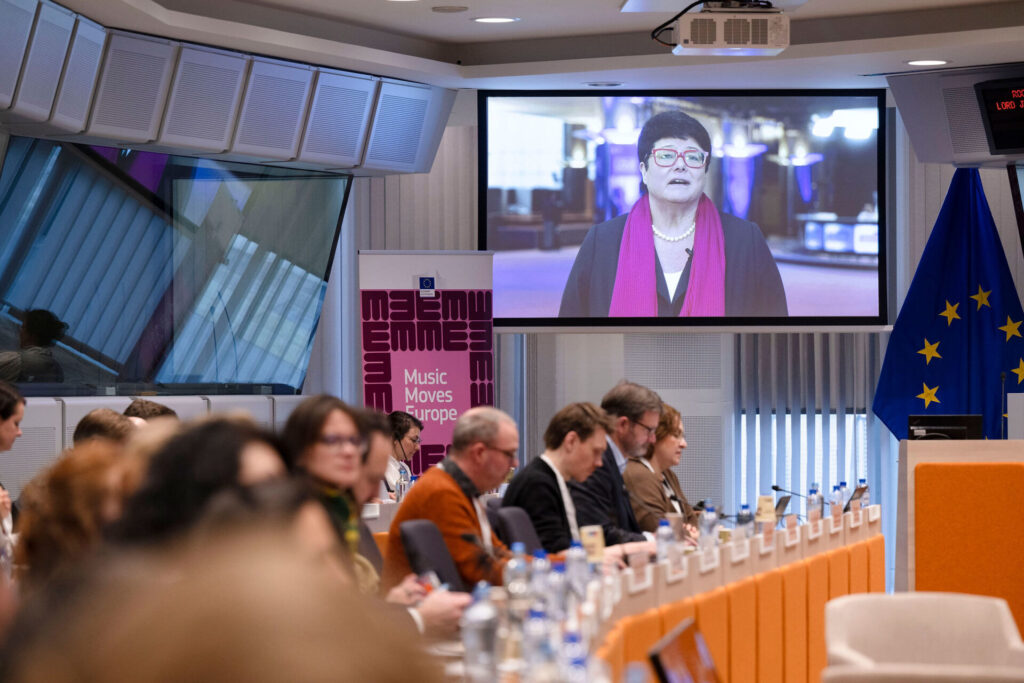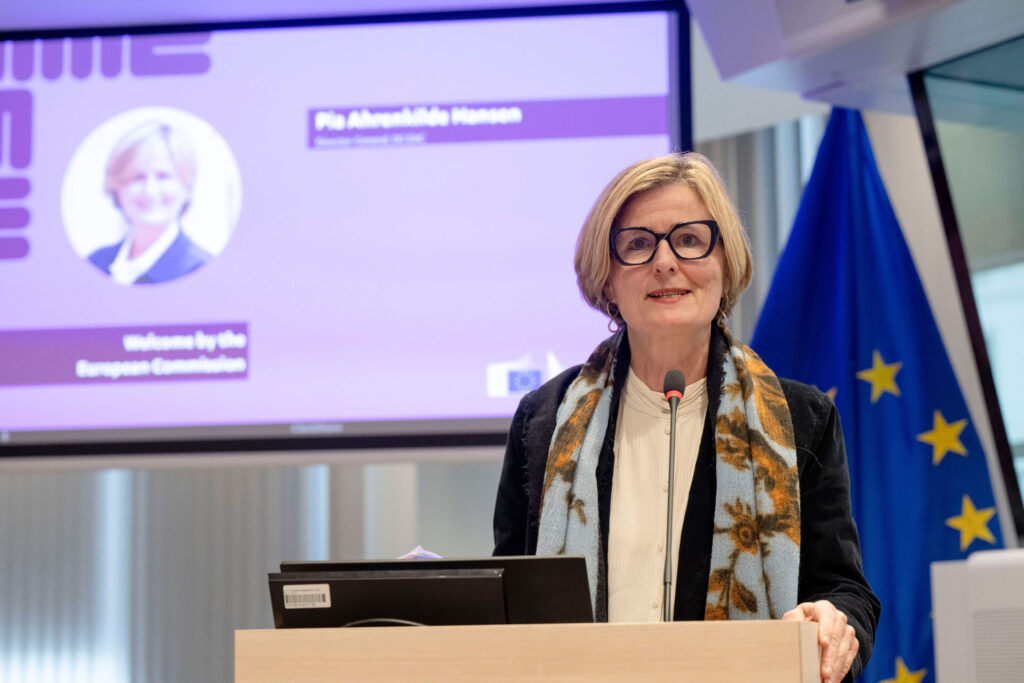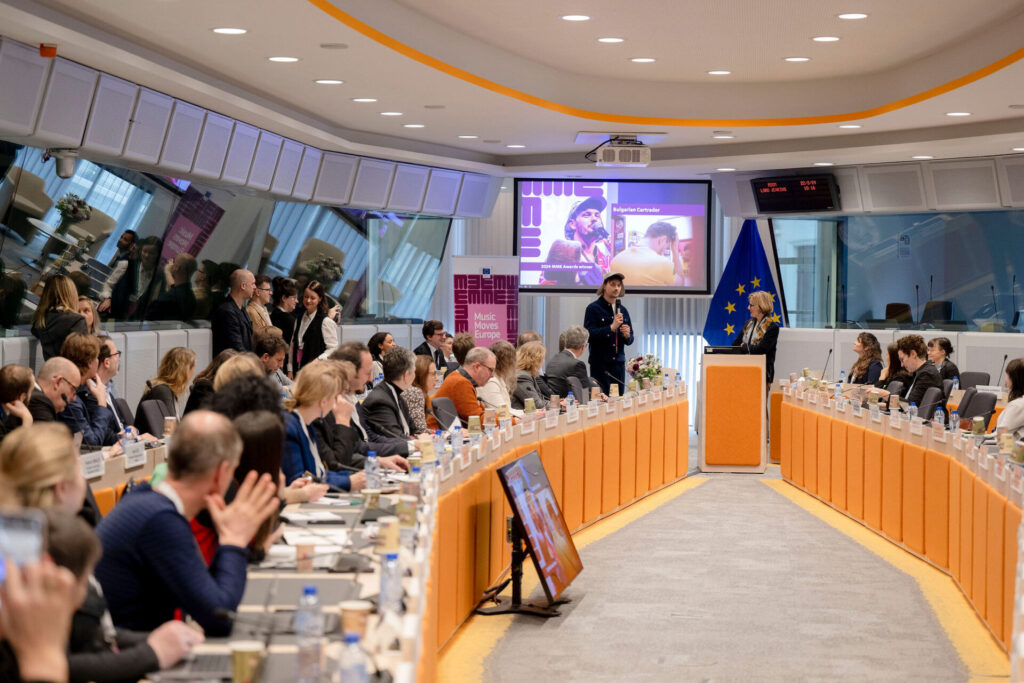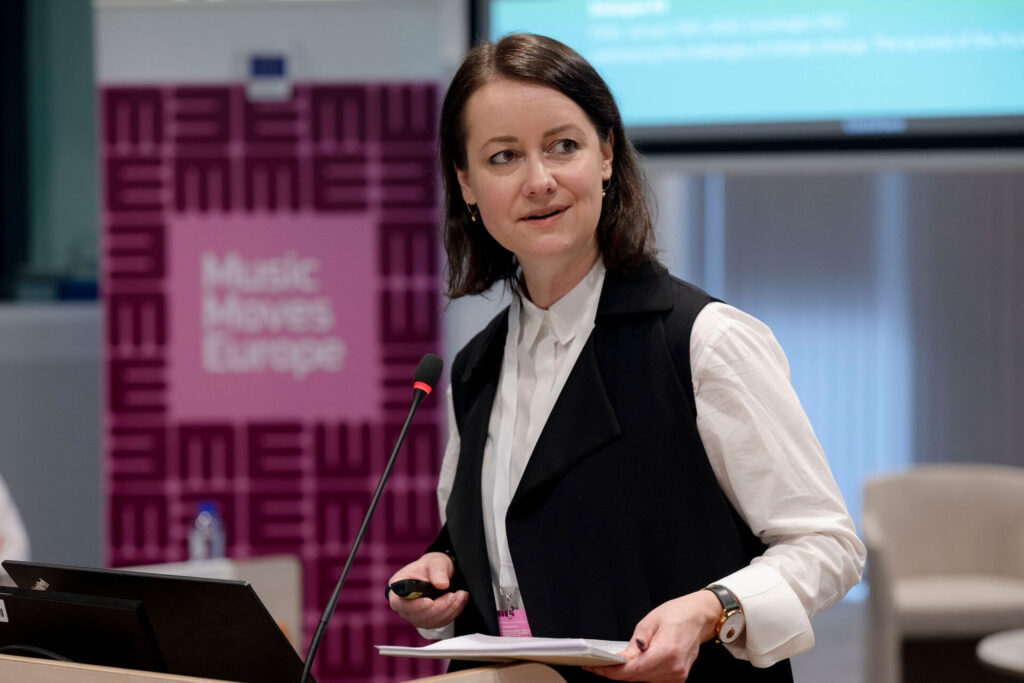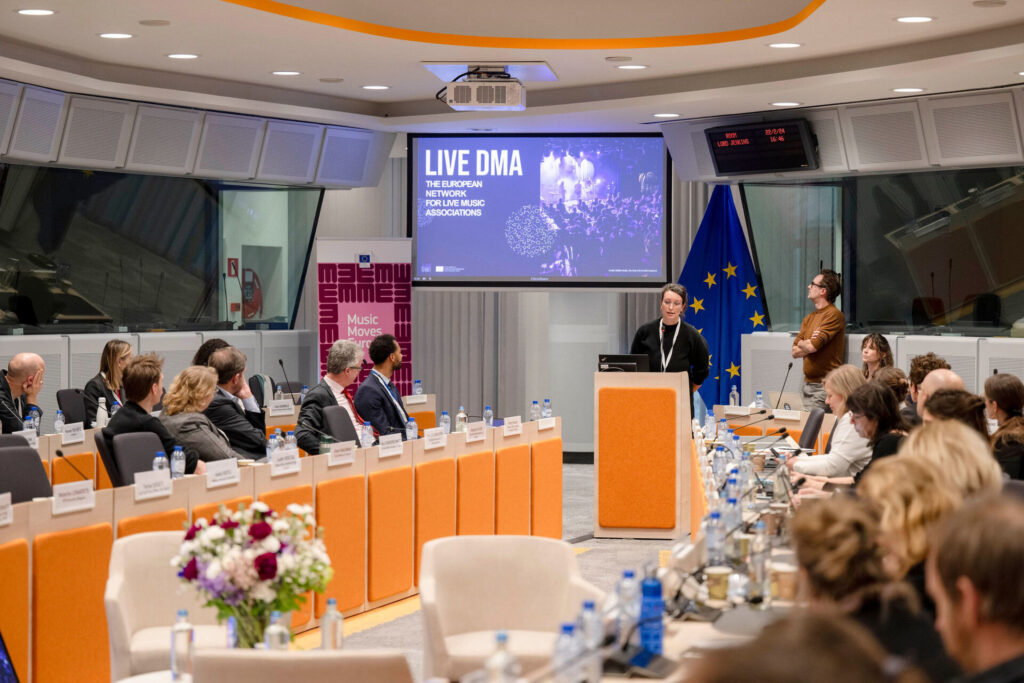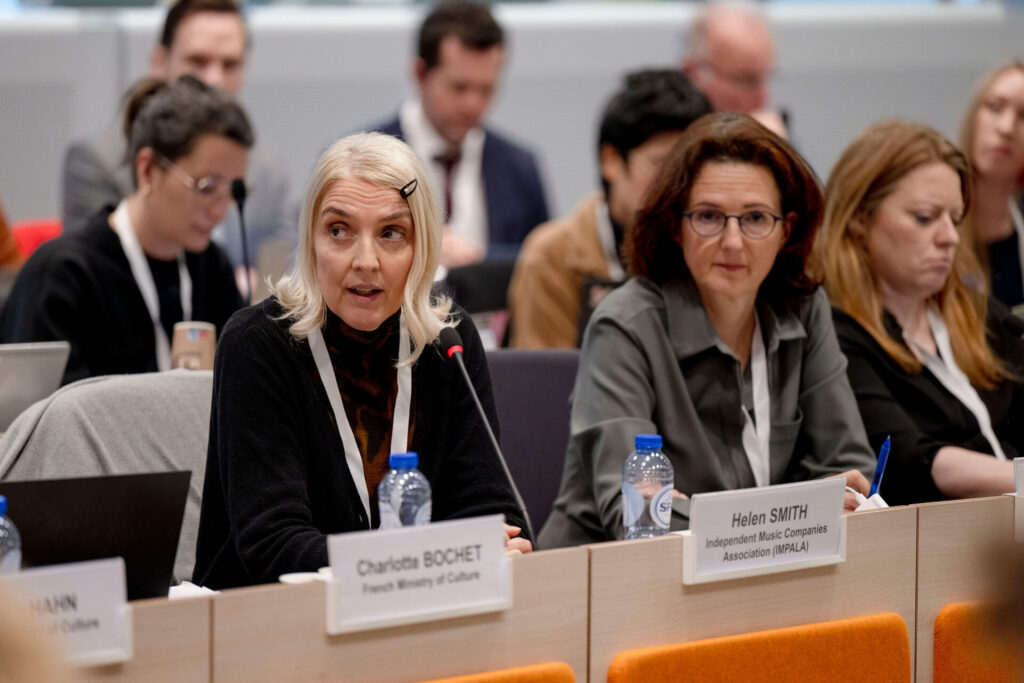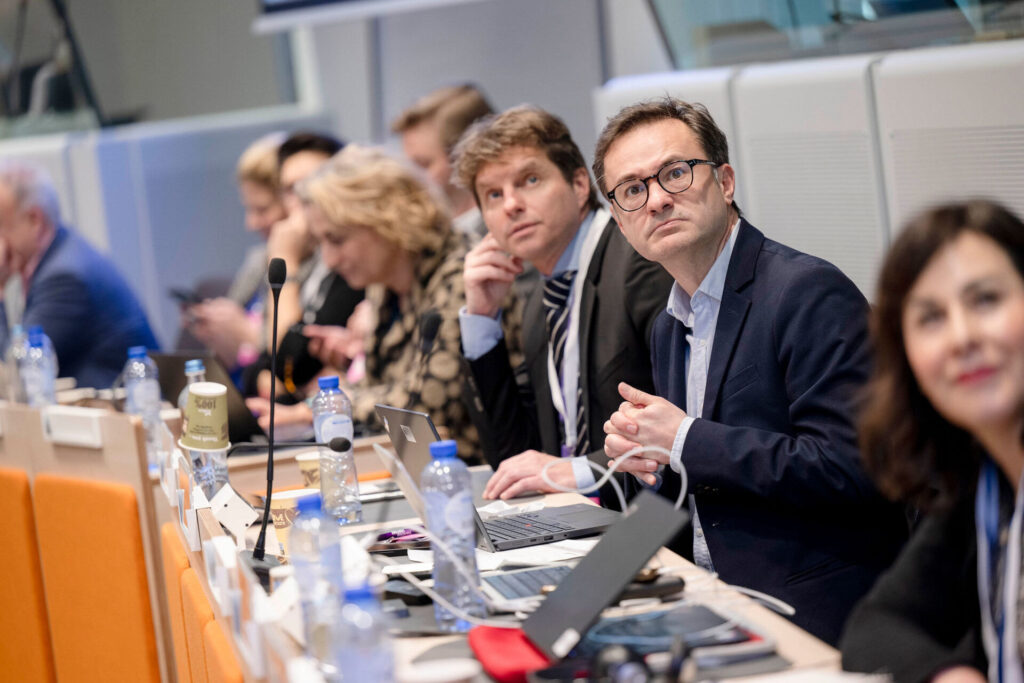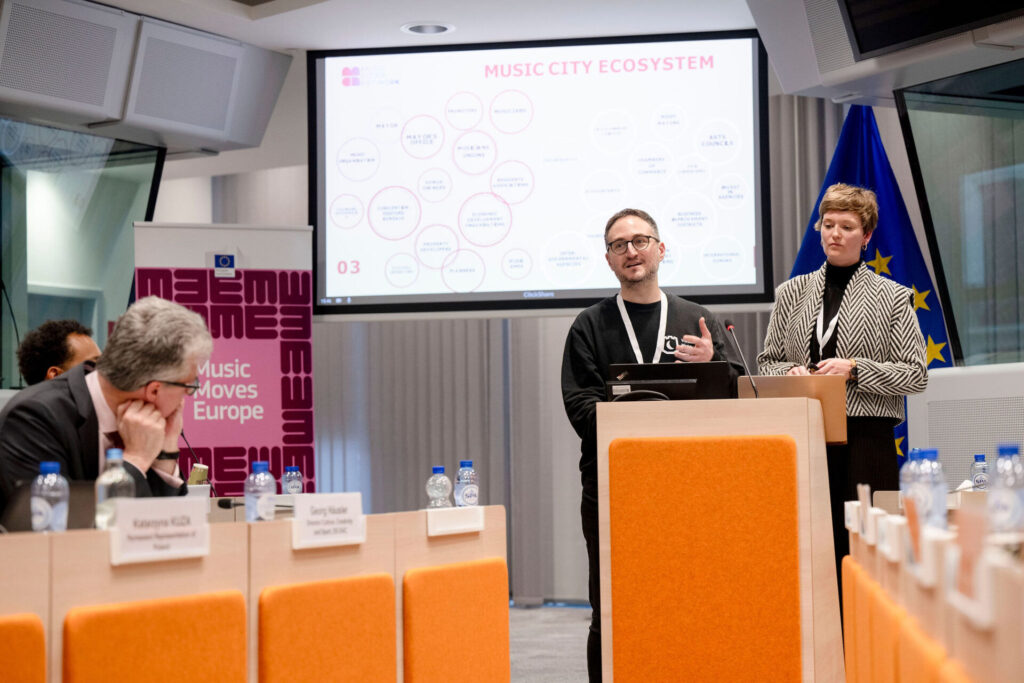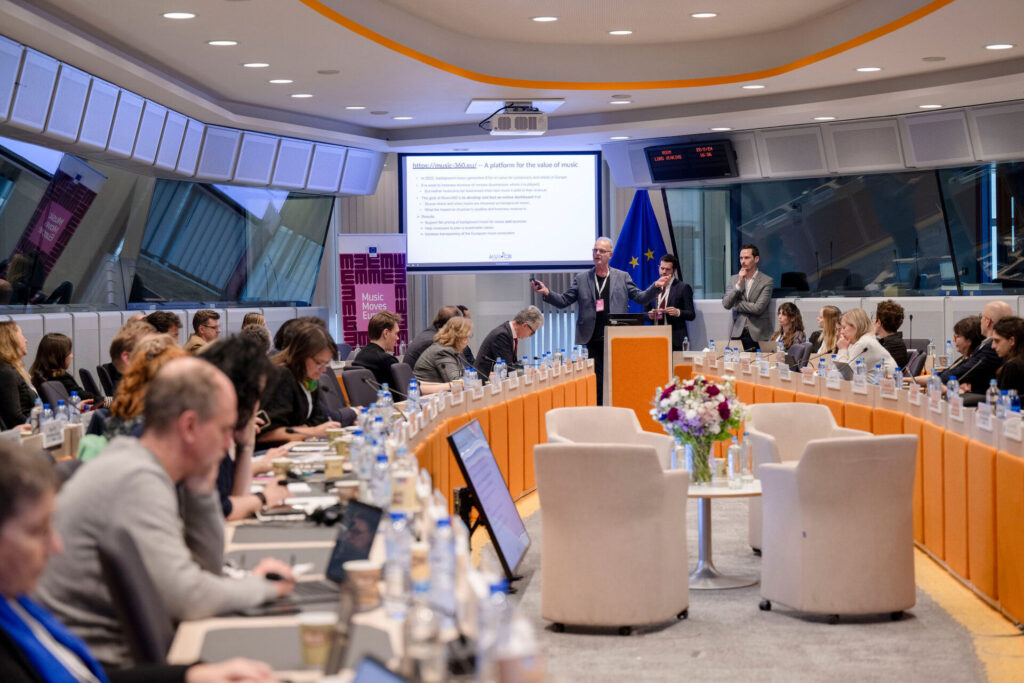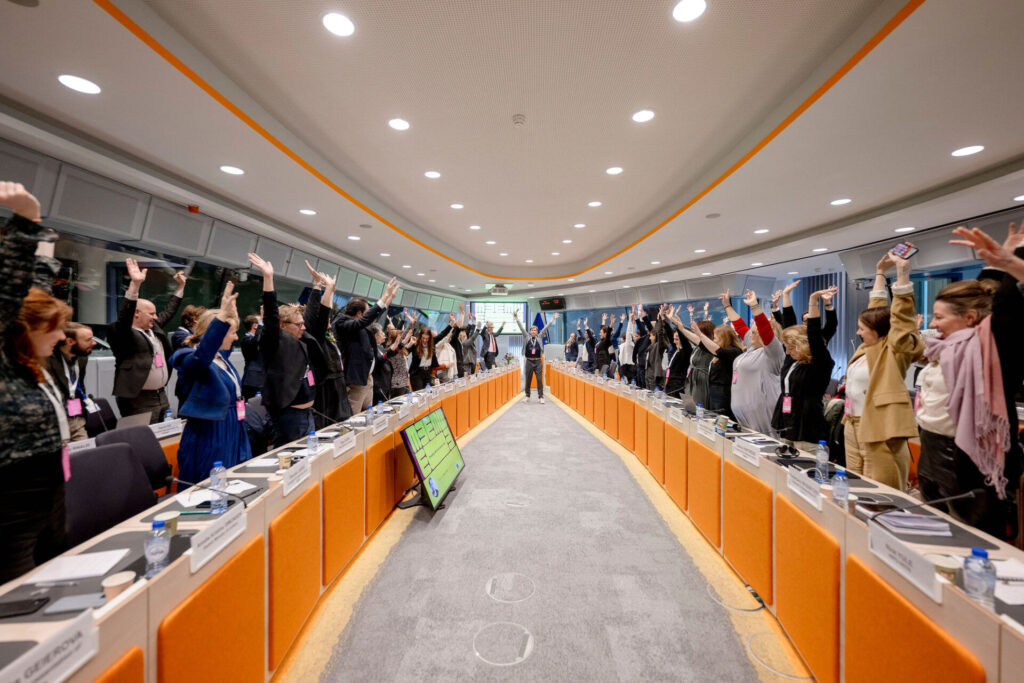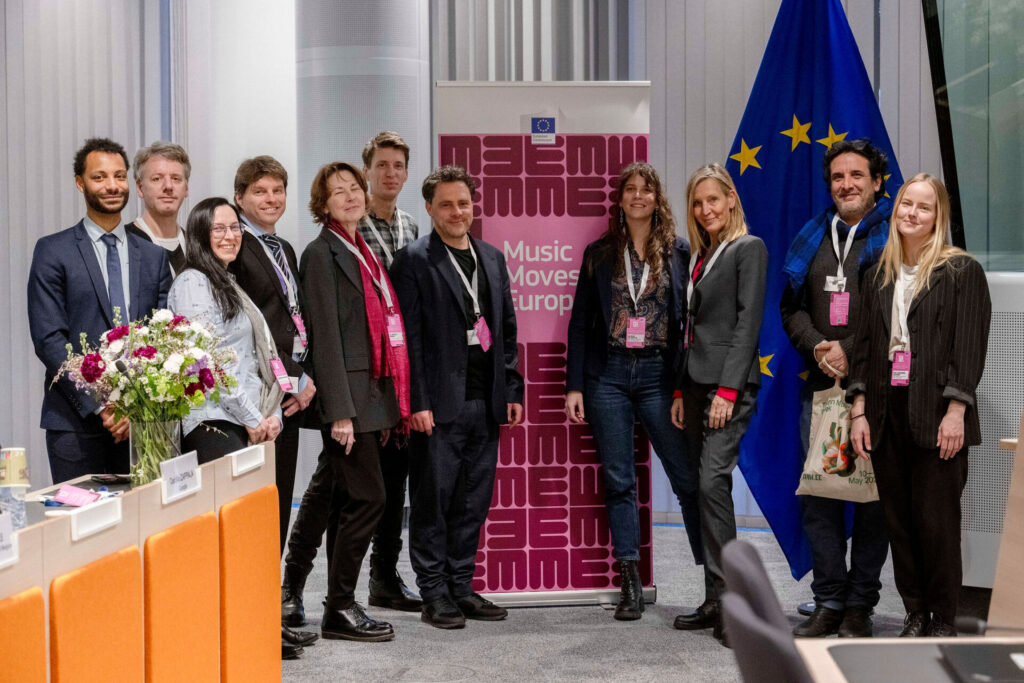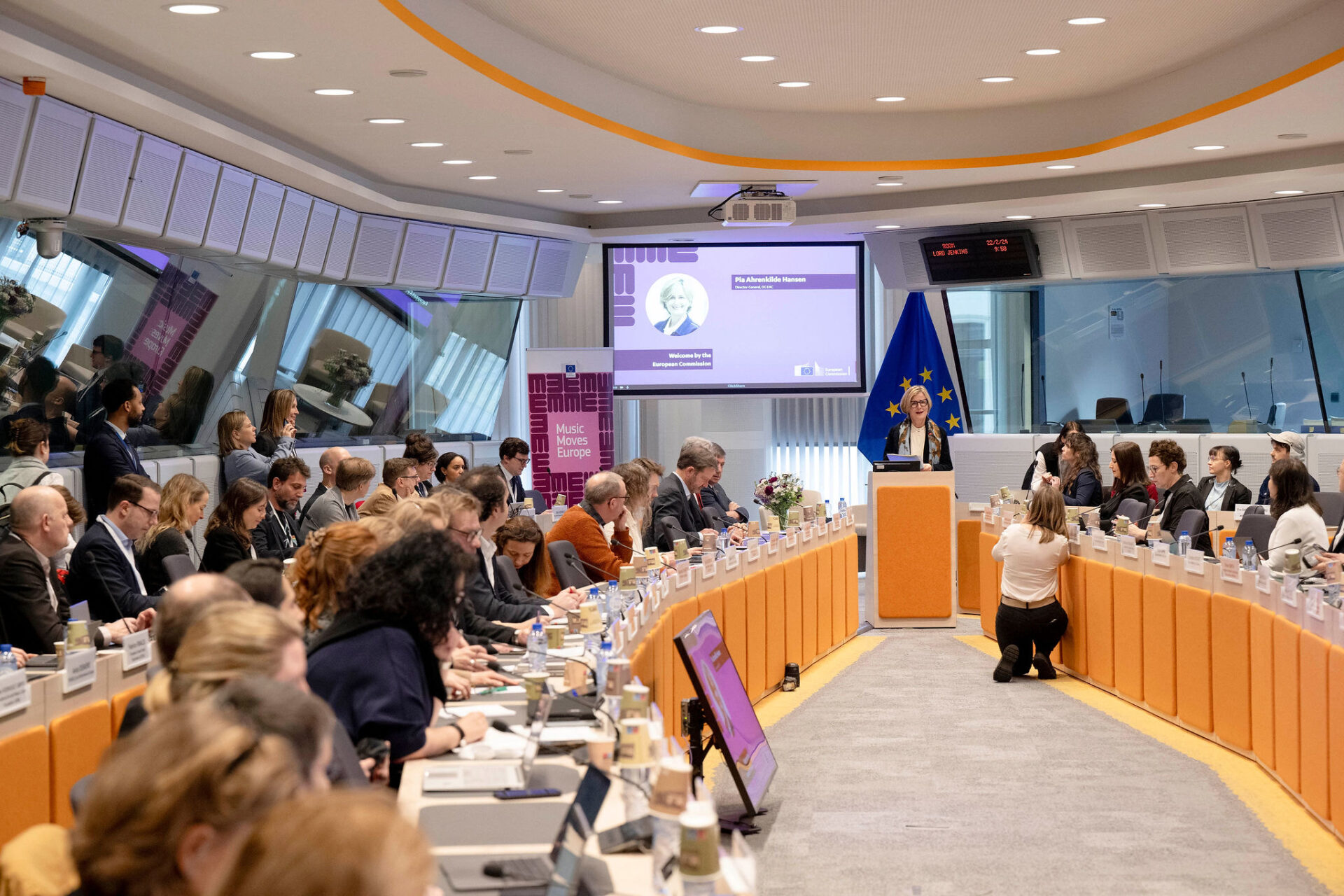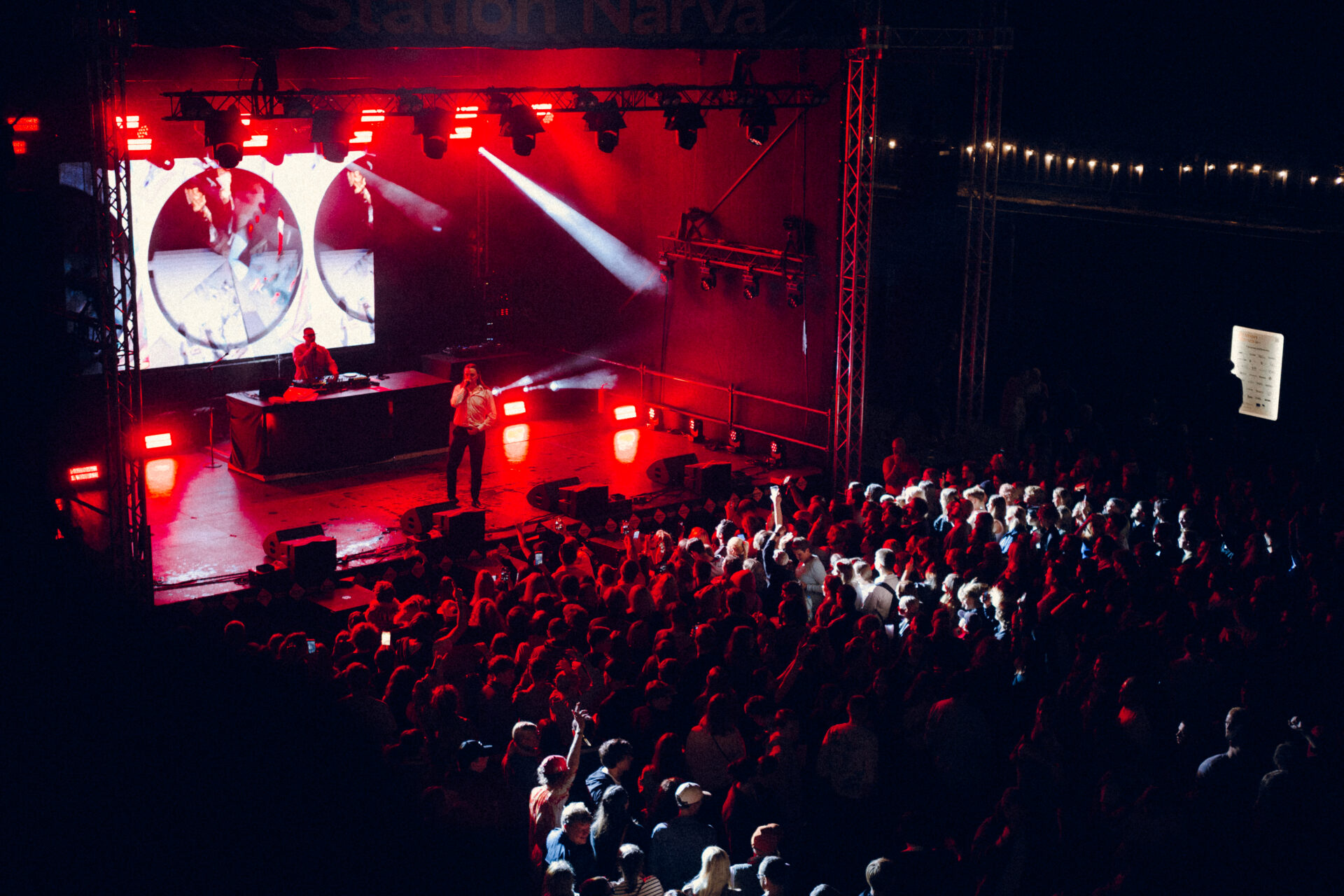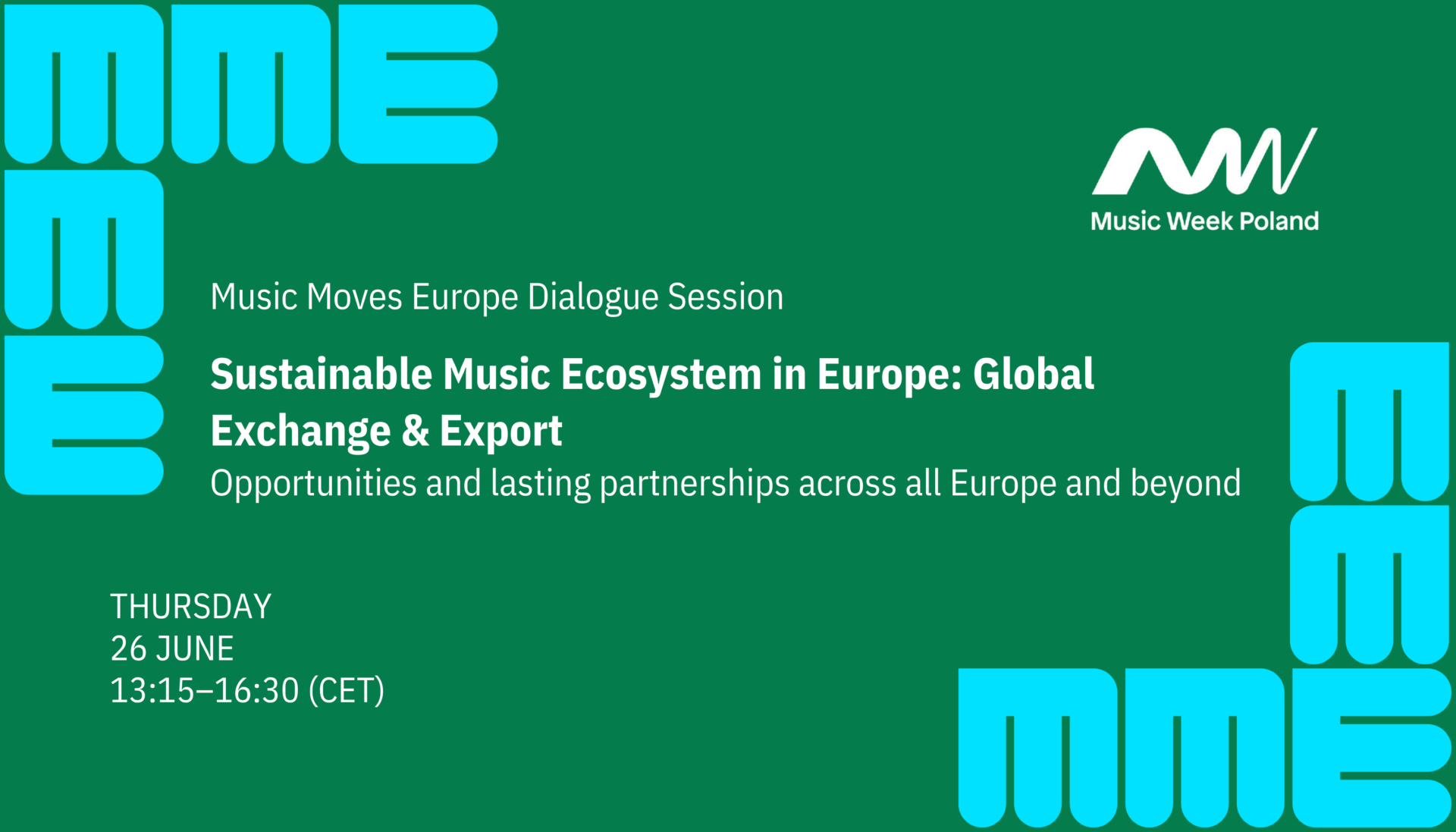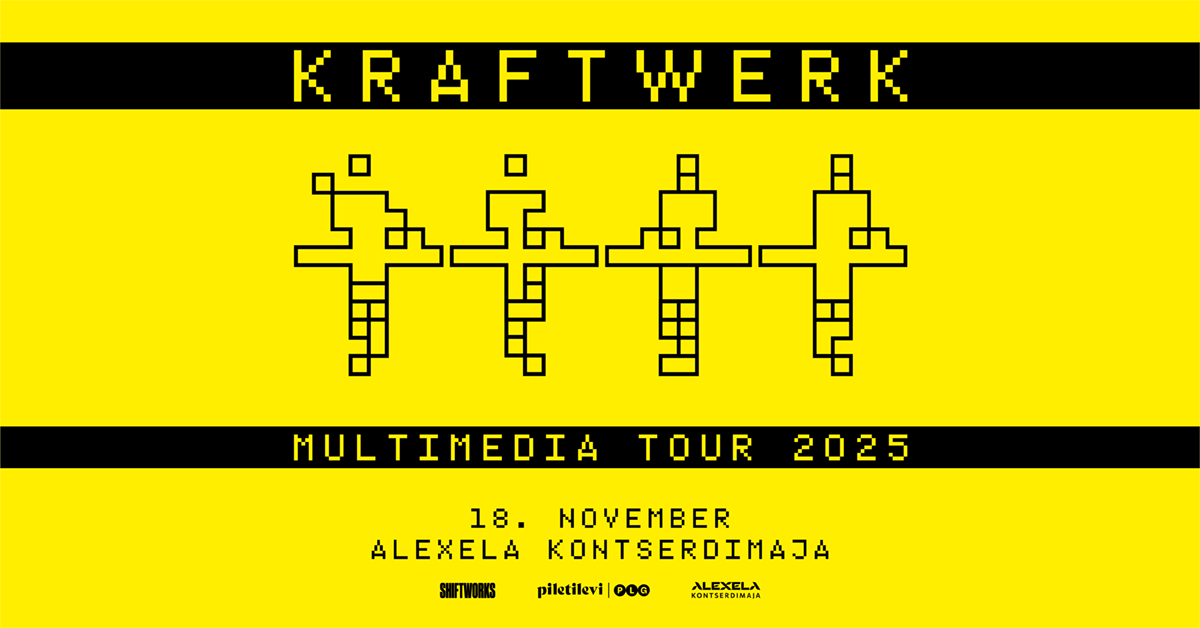The EU Conference on Music was carried out by Shiftworks / TMW, Eurosonic Noorderslag, East European Music Conference, Linecheck, MaMA and Reeperbahn Festival.
Iliana Ivanova, European Commissioner for Innovation, Research, Culture, Education and Youth:
“We find ourselves at a very important moment. As you know – discussions on the next long-term EU budget and programmes will start as soon as the new Parliament is elected and the new Commission takes office. And it is very important to make the voice of the sector heard,” stated the Commissioner in her opening address, pointing out that if we looked at the numbers, we would see just how important the music sector was for the economy, employing over 2 million people and contributing over 80 billion to the EU economy every year.
Naming remuneration of the artists, environmental challenges, fair access and inclusivity, and working conditions of artists as some of the key challenges facing the music ecosystem, which the Music Moves Europe funding instruments would help the sector to overcome – the commissioner highlighted music as a universal language could help to deal with many of today’s challenges.
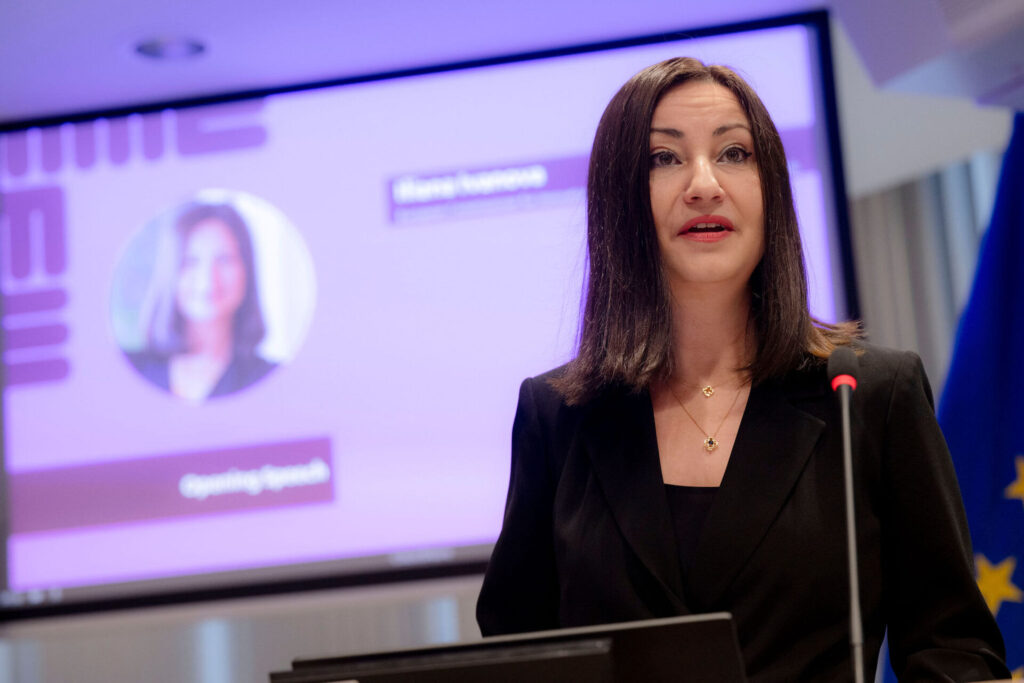
The EU Conference on Music 2024 took place on 22 February 2024 in the context of the Commission’s dialogue with the music sector that was launched in 2023 under the Music Moves Europe initiative (MME). The event aimed to address challenges and needs, along with the new opportunities and competitive edge of the European music ecosystem. Together with representatives from the member states and the EU institutional level, the sector representatives discussed how a music ecosystem can be supported through policy steps, regulatory measures, funding, and dialogue facilitation.
Together with the members of the European Parliament, representatives of the European Commission and the EU member states, as well as representatives from the music sector, around 120 participants gathered at the first EU Conference on Music. Around 500 attendees took part in the conference through the livestream of the event.
The conference discussed the general constitution of the sector as a music ecosystem and addressed its greatest current challenges and opportunities, including technological transformation through AI, streaming reform and the remuneration of artists, as well as the sustainable financing of the music sector and the impact of climate change.
Numerous projects related to these topics and funded by the European Commission were presented, highlighting the sector’s opportunities for joint action in these areas.
The intensive exchange of opinions and the sharing of expert knowledge was well received by the participants. A clear need and desire to represent the interests of the sector with one voice despite differences in priorities clearly stood out throughout the day. At the same time, there is a lot that the music sector can offer policymakers to tackle problems of a societal and social nature, making a lasting positive impact.
Georg Häusler, Director of Culture, Creativity and Sport, DG EAC, European Commission, summed up the conference by highlighting the key topics that were discussed. He addressed the challenging working conditions of artists, noting that it is difficult for most artists to have a sustainable career. He also discussed the uneven distribution of wealth and lack of structure in the sector. Häusler mentioned the threats and opportunities presented by the advancement of AI, the need for legislation and better rules when it comes to streaming, and the importance of the green transition. He emphasised that data handling is an issue in both the music sector as well as across the cultural sector as a whole; reliable data is crucial for strong arguments, and transparency in data sharing remains a problem. Despite these challenges, he pointed out that the sector’s ability to innovate and move fast shows its resilience.
“You have a lot of power in your hands, you have something that politicians like – a huge group that you are talking to, and they are young. This is a real issue because most of the issues of the EU are for old people. You have vast platforms to talk to the youth – so please do it,” concluded Häusler.
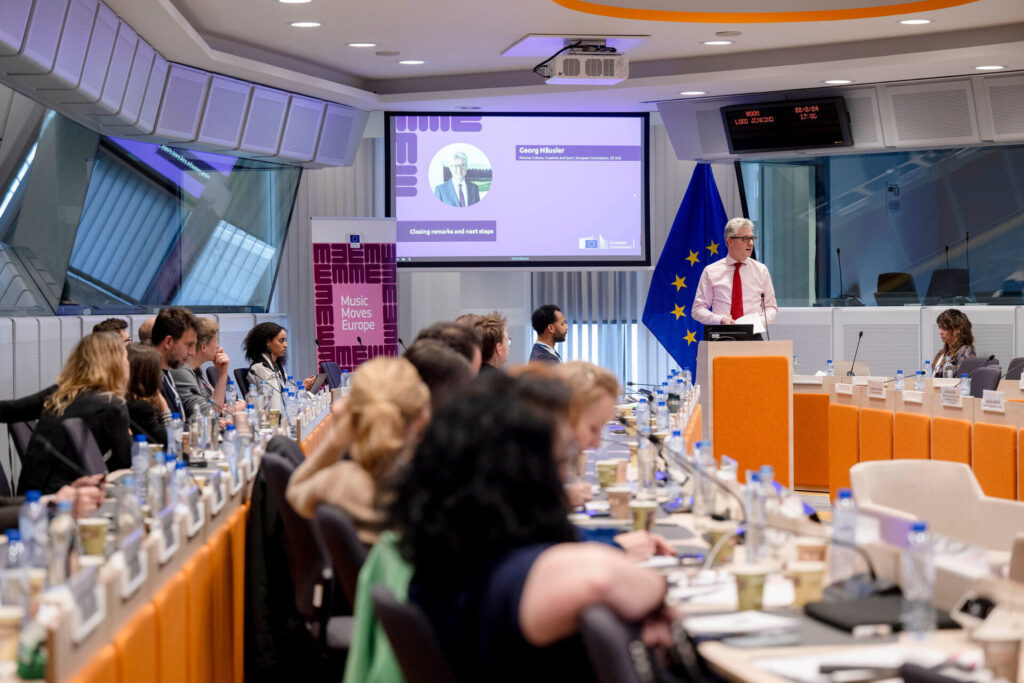
Head of Project of Music Moves Europe: DG EAC, European Commission
Contractor: Consortium of Music Conferences: Eurosonic Noorderslag, East European Music Conference, Linecheck, MaMA and Reeperbahn Festival and Shiftworks/TMW
Coordinator of the Brussels Conference: Shiftworks / TMW
Full photo gallery on Shiftworks’ Flickr. All photos by Valentyna Rostovikova, Pixelshake
